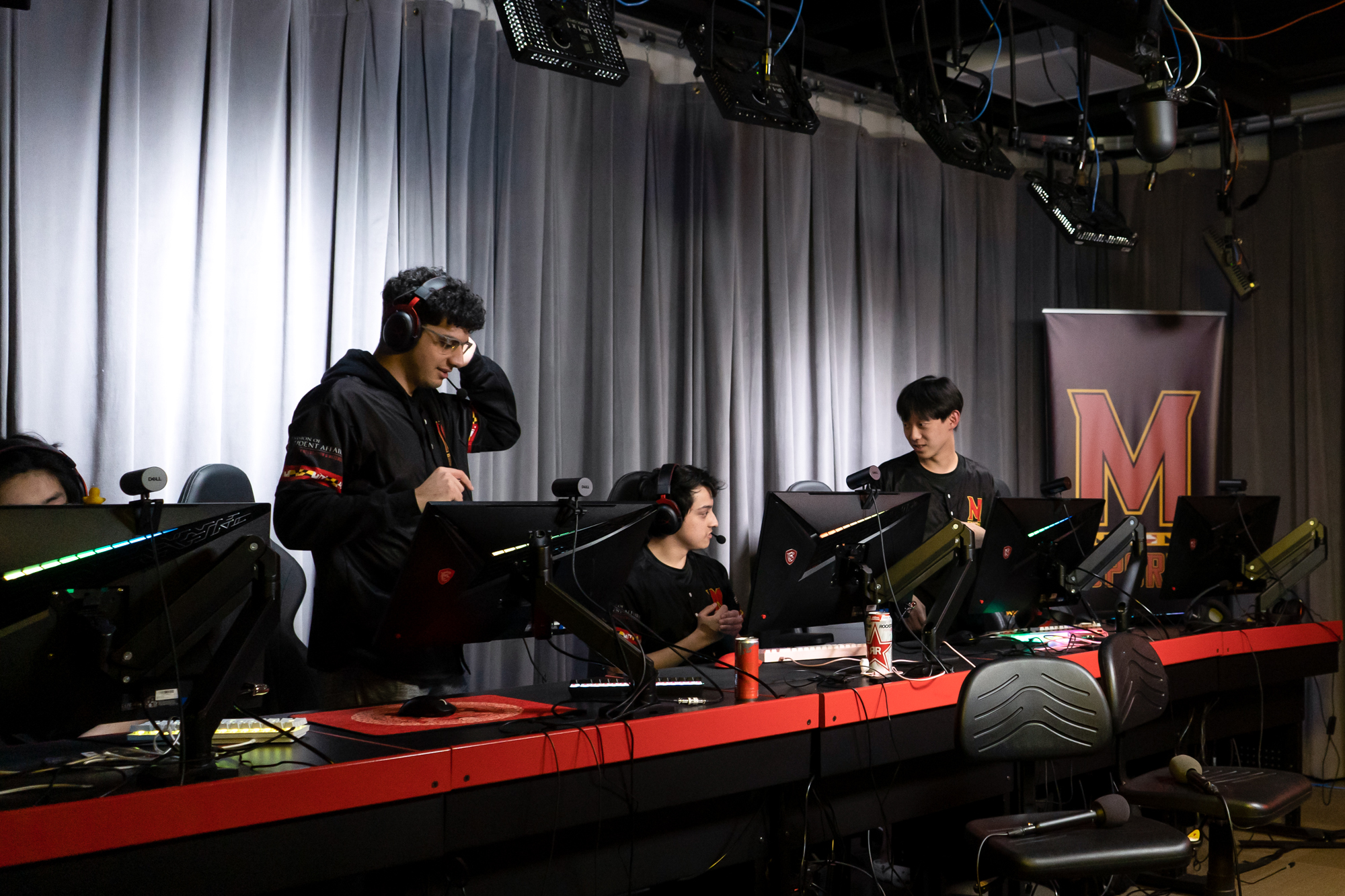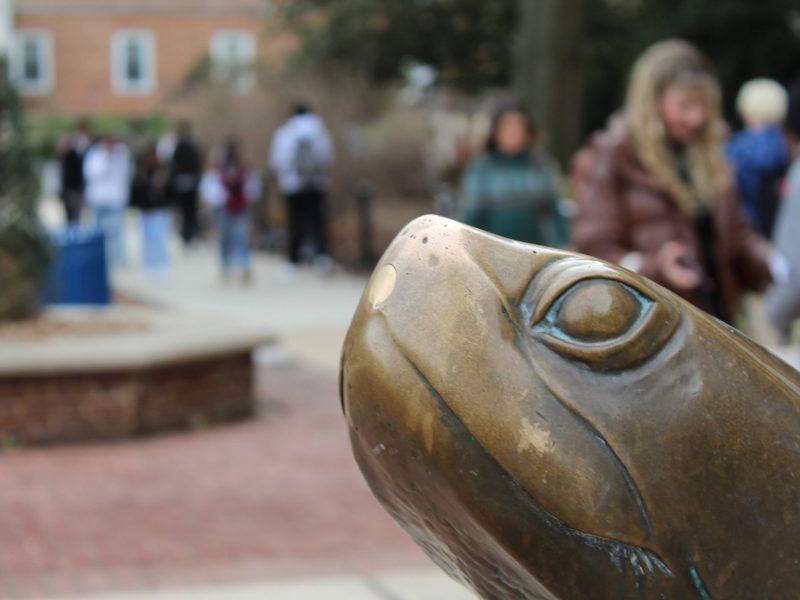During evenings inside Knight Hall’s Studio C, a room full of computers and soundboard comes to life. But instead of journalism students putting together a TV broadcast, it’s the sound of competitive gaming that echoes through the hallways.
With Rocket League on Mondays, Overwatch 2 on Tuesdays, Valorant on Wednesdays and League of Legends or Fortnite on Saturdays, UMD Esports producers and organizers are always hard at work.
The group officially launched as a university-supported organization in March 2022. There are nine teams: five “premier,” which are higher-level competitive teams, and four “academy” teams who train to eventually join the premier tier.
The teams compete in multiple circuits, including the National Association of Collegiate Esports, and against other non-collegiate teams across the country.
They hired their current director, Sergio Brack, in April. Brack said he had to decide between the University of Maryland and Ohio State when he was offered the position. But this university, unlike many other esports programs, is not treated as an athletics program. This means he doesn’t have to spend as much of his time recruiting players, like an athletic coach has to, he said.
“Esports doesn’t feel like it’s on its own island, and it feels like we’re a part of something bigger within RecWell,” Brack said.
According to their website, UMD Esports boasts 22 Student Government Association-supported gaming clubs and more than 1,700 gamers on the campus.
[Unifursity Furries creates a safe, welcoming space for UMD furries]
The organization is centered around what they call the three Cs: compete, create and connect.
UMD Esports hires and collaborates with students across various disciplines to create opportunities in the gaming field. Students work with them in a variety of positions, including graphic design, live video production and data analytics.
Brian Rivas, a junior operations management and business analytics major, is the Rocket League team manager and production observer with UMD Esports. Rivas has been with the organization since last fall, and he loved Brack’s focus on promoting youth and education in the field.
The organization had “growing pains” during their first full semester, Rivas said. But they kept succeeding because Brack provides students with a lot of freedom and creativity, he added.
“UMD Esports has been very open and transparent about the fact that they’re going to be letting the students really innovate this program and let it become what they want it to become,” Rivas said.
Brack also wants their student management to use UMD Esports as a jumping-off point. If they want to go into the gaming industry, he wants to help them build their portfolio.
Journalism professor Nathan Stevens runs the teams’ production and live-streaming. He also helped build the Esports program at the University of Kentucky before coming to this university.
He began reviewing video games in 1999 and has experienced the stigma surrounding both video games and video game journalism.
But the U.S., he said, is slowly catching up to global trends in Esports.
“For an industry that makes more money than the movie industry, it’s still not taken as seriously,” he said.
This university’s program is growing fast and could bring a lot of opportunities for students who are also talented players. They are even planning on building a dedicated esports center, which Brack said will likely open in 2024.
[Video game adaptations are taking over film and TV. That’s a good thing.]
Stevens is there for most broadcasts, managing the team’s switcher and Twitch stream. He said it can be very challenging, with a lot of computer and camera inputs running at once.
“It’s more like traditional sports production where you keep up with the action that flows,” Stevens said.
He doesn’t play competitive games, noting their high potential for toxicity. But anything resembling toxicity is immediately shot down in the studio, Stevens said. There is inevitable trash-talking and light ribbing during games. But the program managers draw a hard line at disrespect or unkindness.
“You need to communicate with [teammates] effectively and mediate any of those things,” he said.
Brack maintains an open door policy and works to solve problems quickly and effectively. He wants his students to feel comfortable talking about issues they are having in their lives.
From his first days in the program, Brack was clear on one thing: He doesn’t tolerate discrimination of any kind.
“I don’t care what role you’re in within the program. We treat everybody with respect and promote an inclusive environment,” he said.



